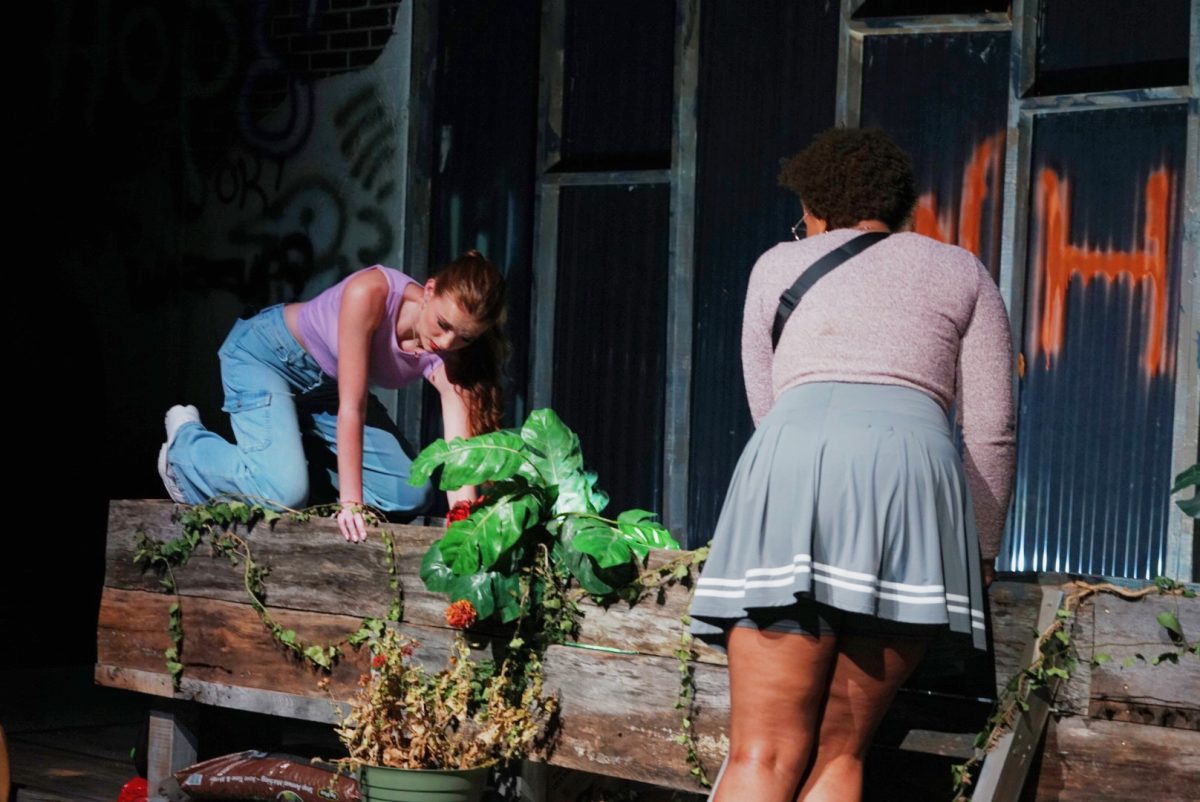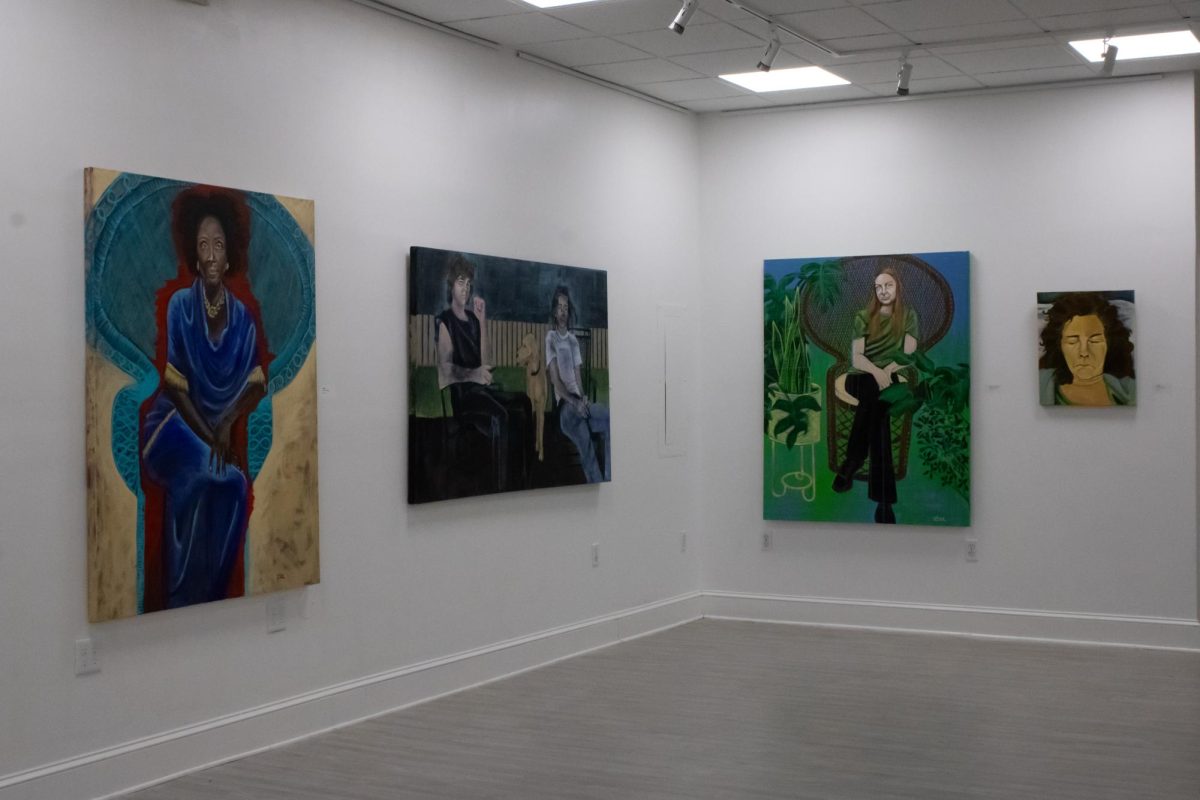This past weekend, UNA’s Department of Cinematic Arts and Theater showcased their own rendition of “Concord Floral,” a 2014 play written by Jordan Tannahill. The play was shown in the George S. Lindsey Theater from Sept. 28, to Oct. 1.
Throughout the story of the play, Tannahill uses the stories of his characters to dive into sensitive topics and dark themes.
“Concord Floral is a one-million-square-foot abandoned greenhouse and a refuge for neighborhood kids; a place all to themselves in which to dress,, dare, and come of age,” the play’s synopsis says. “But hidden there is a secret no one wants to confront, and when two friends stumble upon it, they set off an unstoppable chain of events, from shadows in parking lots to phone calls from the grave. It’s time for the teens of Concord Floral to start talking.”
Following the synopsis, a content warning informed the audience that the production included themes of “supernatural and haunting elements,” “sexual content” and more. Early on in the production, the characters are developed through graphic depictions of sexual encounters, the discovery of a dead body, and even close-calls with death themselves.
The central storyline of the play revolved around the discovery of that body by two girls, Rosa Mundi and Nearly Wild. While adventuring in the abandoned Concord Floral greenhouse, they come across the deceased body of Bobbie James. The rest of the play weaves an intricate web of symbolism and imagery around Bobbie’s supposed death, touching on themes of peer
pressure and bullying.
The cast of the play had high praise for Abigail Dillard, the director of the production, remarking on her hard work and genuine care for the actors with regards to covering such intense topics. One of those actors is Mark Smith, who played the character of John Cabot.
“I loved working with Abby,” Smith said. “She really treats her actors with care and respect. She made it clear on day one, in our table brief, that we are not just puppets[…], that she wants to treat us with dignity, and she wants to treat us with autonomy as much as physically possible, while still telling the story.”
According to the cast Dillard cautiously approached some of the more intense content within the play.
“Every step of the way we had boundary checks,” Smith said. “We had intimacy calls, we had, ‘What are you comfortable with?’ While we couldn’t change the script–we couldn’t change what was written at all–we could change how we approached it.
Although the storyline ventured over several different topics, the overarching theme of the play seemed to be the need for empathy in modern society. Through its portrayal of the difficulties faced by each of its characters, Concord Floral displays how people often suffer through personal trials outside of the knowledge, even outside of the care, of the people around them.
The play ends with an exhortation from the narrator to live lives filled with kindness and mercy, stating:
“I think, by and large, people want to be moved towards mercy. And I think they will. I think we’re moving towards mercy.”










